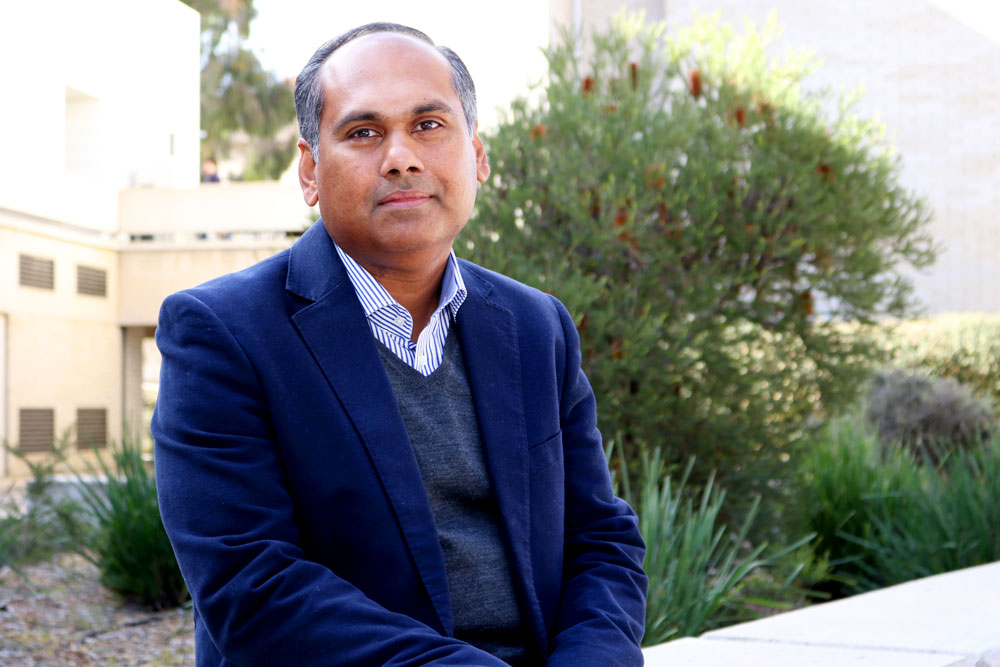Libby Kimber
7 August 2017: A commitment to engineering and a growing collection of innovative solutions to real-world problems has earned the University of Canberra’s Assistant Professor of Network Engineering Kumudu Munasinghe formal recognition by Australia’s leading engineering body, Engineers Australia.
Dr Munasinghe was recently invited to become a Companion Member of Engineers Australia for his contributions to the engineering field through teaching and research.
“It’s a huge recognition, not just for me but for the entire university. It’s recognition of the high quality engineering programs that we have underway here,” Dr Munasinghe said.
“The Companion is one of the highest awards that Engineers Australia give. It’s really special to us because this award is by invitation from the national membership committee, which makes me just the sixth Engineers Australia Companion in the ACT.”
Dr Munasinghe is a highly regarded engineer outside of his academic career, who currently leads a research group working on wireless networks and communication systems.
His recent work has included the development of an IoT (Internet of Things) technology, which monitors soil conditions in high-risk forests at the National Arboretum in Canberra and reports back to forest managers with real-time updates.
Dr Munasinghe has also been involved with the ACT’s Frogwatch program, introducing IoT technology for remotely monitoring frog calls to assist volunteers with their annual census of the various species in ACT waterways.
Dr Munasinghe said the award supports the University’s approach to engineering education through ’research-led teaching’.
“The students are involved in all of the things that we are researching and working on here today. They get first-hand experience and assist in the creation of new technologies to answer these real-world problems; that’s what makes it so wonderful.
“The final year engineering students need to do a lot of industry training, so we create these opportunities inside the University for them. The ACT Government has actually funded the next phase of the National Arboretum network, a project that started last year with our students. That’s another great vote of confidence in the work and in the results,” he said.
Dr Munasinghe and his research team are currently developing a ‘breadcrumb network’; a wireless network that uses tiny routers to create a ‘Wi-Fi pathway’ into underground mines. This technology establishes a data connection for miners, allowing them to contact the surface using their mobile devices, rather than hard-wired communication options. The same technology could also be used by the military, SES, and even bush walkers who could be out in the wilderness where there is no network coverage.
Dr Munasinghe says that it is very exciting to have Engineers Australia appreciate both his previous and ongoing research and work, which is always evolving to adapt to new technology.
“It’s fun and there is a lot of learning new things. It is exciting particularly as you never really know what you’ll be working on tomorrow,” he said.



